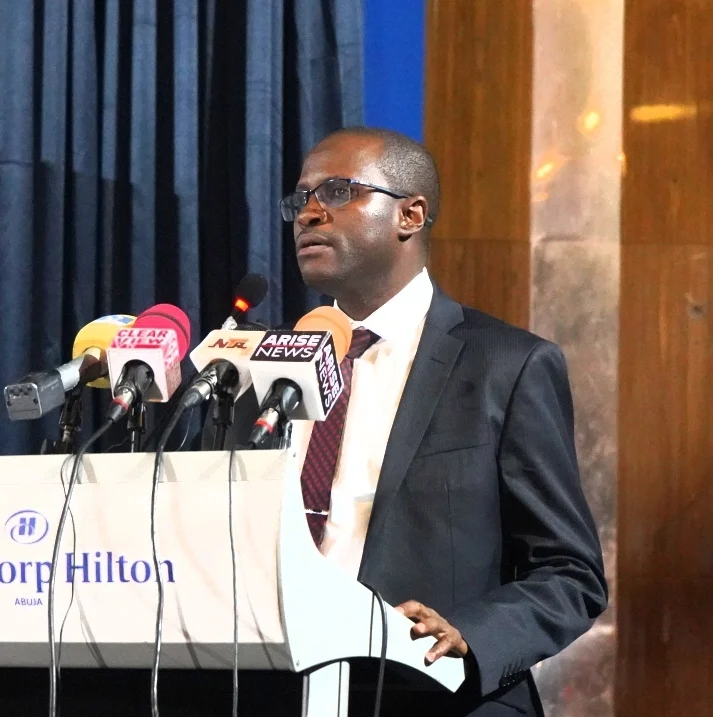The Chairman of the Independent Corrupt Practices and Other Related Offences Commission (ICPC), Dr. Musa Adamu Aliyu, SAN, and other Key stakeholders in Nigeria’s anti-corruption efforts have called on the National Assembly to pass the Whistleblower Protection Policy Bill to enhance the country’s fight against corruption.
The call was made on Thursday at an event put together by the Technical Unit on Governance and Anti-Corruption Reforms (TUGAR) to mark the 2024 African Union (AU) Anti-Corruption Day in Abuja.
This year’s theme, tagged, “Effective Whistleblower Protection Mechanism: A Critical Tool in the Fight against Corruption,” underscores the importance of policies safeguarding whistleblowers and encouraging the reporting of corruption for a corruption-free Nigeria.
Aligning with the event’s theme, Dr. Aliyu, stressed the need for legislation to protect whistleblowers, urging the National Assembly to enact the Whistleblower Protection Policy Bill.
He highlighted the pivotal role of whistleblowers in anti-corruption efforts and the necessity of proper frameworks to ensure their protection, saying “We need a robust Act of the National Assembly to protect those risking their lives to disclose issues about corruption in our country.”
The ICPC boss also emphasized the importance of synergy among various anti-corruption agencies to build public confidence in reporting corruption.
Mrs. Jane Onwumere, Head of TUGAR, noted that this year’s AU Day theme is informed by the findings from the review of members’ implementation of the convention.
The review, according to her, showed that inadequate whistle-blowing systems and mechanisms were major challenges in the fight against corruption and stressed the importance of guaranteeing adequate protection for whistleblowers to report corruption without fear of retaliation.
Activities of the event included the launch of the Third National Corruption Survey, a collaborative effort of the National Bureau of Statistics (NBS), the United Nations Office on Drugs and Crime (UNODC), and the MacArthur Foundation. The survey provides critical statistical data on the quality and integrity of public services in Nigeria.
The Statistician-General of the Federation, Prince Adeyemi Adeniran, highlighted that previous surveys were conducted in 2016 and 2019, adding that the surveys had positioned Nigeria as a leader in establishing international best practices for periodically and scientifically assessing anti-corruption efforts.
He explained further that “the survey is a vital tool for evidence-based policymaking, enabling comprehensive analysis of corruption trends and the effectiveness of anti-corruption strategies.
The Attorney General and Minister of Justice, Mr. Lateef Fagbemi, SAN, in his keynote address, suggested that a comprehensive standalone whistleblower protection law would enable early detection of corruption cases.
The Minister emphasized the event’s significance, coinciding with Nigeria’s implementation phase of the National Anti-Corruption Strategy 2023-2026 and its action plan.
“My ministry, working with key stakeholders, is finalizing the Action Plan 2023-2026, which will be launched soon,” he said.
He urged all stakeholders to engage actively and contribute ideas to support anti-corruption efforts in Nigeria.
The event also included two paper presentations: “The Impact of Whistleblowing Policy on Public Sector Accountability and Transparency” by EFCC Chairman Mr. Ola Olukoyede, and “Whistleblowers Protection Bill: Challenges and the Way Forward” by Mr. Ashley Emenike, Executive Director of the Global Organization of Parliamentarians against Corruption.
July 11th is a day set aside by the AU to observe Anti-Corruption efforts across the continent under the African Union Convention on Preventing and Combating Corruption (AUCPCC). The day is used to recognise the significant strides achieved in combating corruption in Africa and encourages reflection on strategies to eradicate it.


